The Top Five Vegetables To Grow From Seeds For Beginners
By Victoria Fuller
The Perks Of Growing Vegetables
It is no secret that inflation seems to just keep inflating, so growing your own delicious fresh produce is a fantastic option for saving money, saving time, and making healthy and tasty decisions!
These five vegetable options have been known to thrive and grow in practically all 50 States, but if you do live in a State with a colder persuasion we would recommend also investing in a Greenhouse Cover to help insulate your plants and extend your growing season!
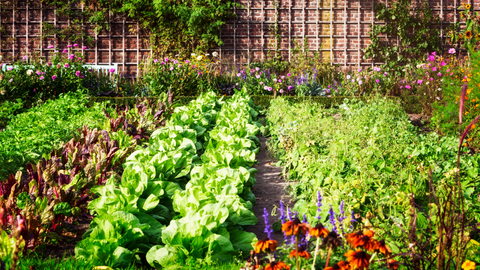
What Do You Need?
To successfully grow seeds you will need the seeds themselves, planting vessels (such as seed trays for indoors and raised garden beds or planter boxes for outdoors), garden tools and accessories, and a green thumb! It's also a good idea to survey your outdoor area to choose the best spot for your plants to get full sun!
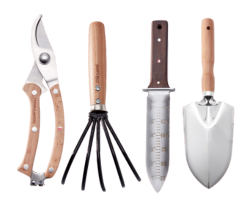
Which Vegetables Are The Most Popular To Grow?
There are literally hundreds of options when it comes to growing your own fresh produce at home so to narrow it down we chose to focus on what most people would consider the “big five” of home-grown veggies. These icons can be found in most vegetable gardens across the globe, and for good reason! They are delicious, easy to grow, and fast to take from seed to harvest! Let’s dig in!
Tomatoes
One of the most popular vegetables (that isn’t actually a vegetable!) for beginners and seasoned gardeners alike is the noble tomato. Once you have had your seeds growing indoors under a grow lamp for 2-3 weeks they will be ready to transplant outdoors (providing the last frost has well and truly passed!). These tasty fruits need well-fertilized soil, full sun, a trellis or cage to help them reach for the skies, 1-2 inches of water per week and regular pruning to encourage new growth. Your tomatoes will be ready to harvest after about 3 months (90 days) from when you initially plant your seeds!
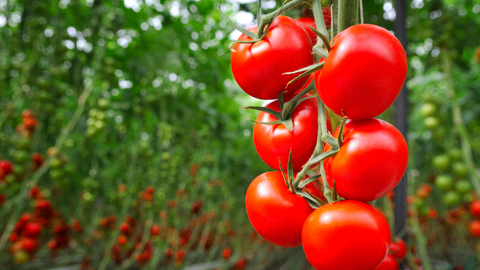
Potatoes
These delicious subterranean starchy vegetables are incredibly easy to grow from both seed or sprouting potatoes. Potatoes need to develop a large and intricate root system so you will want to ensure they have plenty of space wherever you end up transplanting them. Cedar Planters have incredible (and spacious!) grow bags that are a fantastic option for potatoes, as well as our beautiful raised garden beds which have a substantial planting depth suitable for any vegetable! Potatoes need to stay indoors until they have germinated (this usually takes between 10 and 14 days) and then can be transplanted outdoors (also you can measure them and once the plants are around 5cm tall they will be ready to transplant!).
Potatoes like well-drained, acidic soil, a position in the garden where they will receive full sun, and 1-2 inches of water per week. Potatoes can also be susceptible to some diseases carried by other plants (such as peppers and tomatoes) so try to avoid planting these vegetables side-by-side!
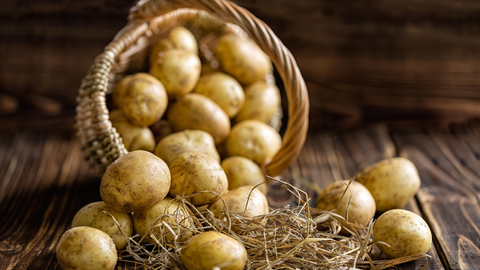
Zucchini
These delicious veggies have certainly had their moment in the sun in recent years (both literally and figuratively) with the rise in people taking an interest in “zoodles” (spiral-cut zucchini that can be used as a carbohydrate-free alternative to spaghetti!), and with that they rise in people growing zucchini has been noticeable! Zucchini will need to stay indoors for 10-14 days before it is time to transplant them outdoors, and all in all they have a very short growing season! Zucchini take between 40 and 55 days from seed to harvest!
Zucchini like full-sun, well-drained soil rich in organic matter, and around 1-2 inches of water per week. If you notice that your Zucchini is reaching for the skies you can also support and encourage them with a trellis!
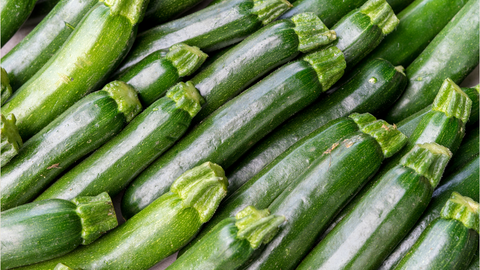
Peppers
These delicious and colourful vegetables are as easy to grow as they are tasty! Growing Peppers from seeds is a fantastic option for beginners as they are relatively laid-back and fool-proof! Peppers do like to take their time in the seed phase, needing around 8 weeks indoors before being transplanted outdoors, then once you have planted them in your planter box you simply have to keep an eye on them and harvest them once they have reached full maturity (indicated by their colour!).
Peppers like space (plant them around 18 inches apart so they have room to grow!), full sun, well-drained soil, and 2-3 inches of water per week (perhaps a little more on hotter days).
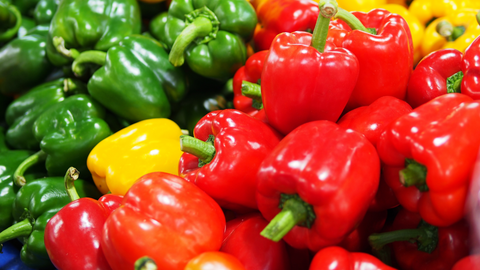
Beets
This salad staple has certainly made an impact in recent years (hello Goat Cheese and Beet salad!) and thankfully it is incredibly easy to cultivate at home! Beets need only 7-8 weeks from initial planting until they are ready to be harvested! This means that once they are approximately the size of a golf ball they are ready to be enjoyed! Once your Beet plants are about 3” tall (or around 5-6 weeks after you initially plant your Beet seeds) your plants will be ready to be transplanted outdoors.
Beets like around 6-8 hours of sun per day, only around 1 inch of water per week, and well-drained soil (so another fantastic option for a Cedar Planters grow bag or raised garden bed with its built-in drainage system!).
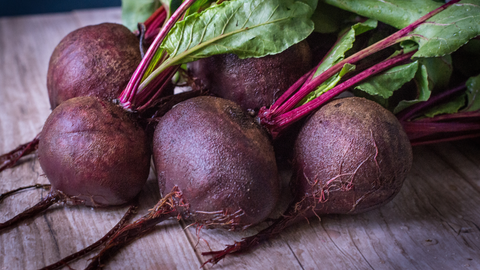
Raised Bed Vegetable Gardening
When it comes to deciding the vessel for growing the best possible vegetables, we would highly recommend investing in some high quality planter boxes or raised garden beds. Cedar Planters offers products that are hand-crafted with the highest quality food-safe Western Red Cedar, are resistant to weather, rot, and decay, and are easy on your back (and your eyes!).
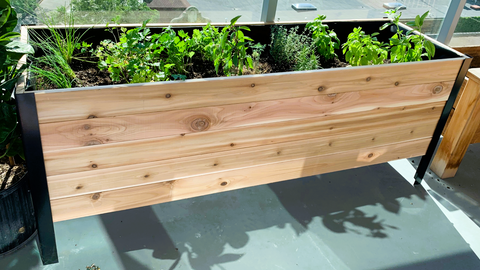
Will you be growing your own tasty vegetables this Spring? If so please feel free to comment below any veggies that you would like growing tips for and we will try our best to write a focused blog on the vegetable or herb in question!









Hi, I purchased 2 cedar boxes and this would be my first time planting and growing vegetables. From the above article, it sounds like I have to plant indoors first before transferring to outdoors. Is this the process for all vegetables? I would like to plant: peas, non gmo corn, lettuce, broccoli, a variety of peppers, cabbage, red potatoes and various herbs/spices.
———
Cedar Planters replied:
Hello Hakima!
Thankyou for your comment! The climate where you live is the depending factor on whether or not we would recommend starting your seeds indoors or directly outside in your raised garden bed. If you live somewhere where there are still regular ground frosts (like Canada or the Northern US) then yes we would recommend starting your vegetable seeds indoors where they will be protected from the elements!
I hope this helps! Please let us know if you have any further questions! – Victoria ________________________________
Leave a comment